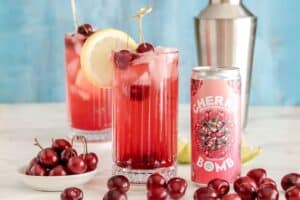Some of these foods contain far more sugar than you might expect.

Sugar is not the only enemy of your weight-loss plan, but is is one of the places many people slip up because they eat a lot of foods that they think are sugar-free, and therefore don’t factor the calories into their total calories for the day.
Things like ice-cream, chocolate, sweets are obviously choc-a-block full of sugar (and usually fat), and anyone on a healthy eating plan will know that they should avoid them.
But there are actually a lot of other foods with hidden sugar in them. You might think you’re eating a really healthy meal, but the hiding sugars add to your calories, and eventually your weight. This can be very disappointing and demoralising, and many people end up giving up on their diets because they just don’t seem to be working.
Does this sound familiar?
You might be eating hidden sugars! Here’s where to look:
1. Coleslaw
I know what you’re thinking … coleslaw is a salad right? Aren’t salads healthy? Think again. Coleslaws – especially the ones served in restaurants and at fast-food chains – can have as much as 15g of sugar (plus loads of fat) per serving.

Picture: iStock
Rather make your own at home. If you really can’t spare the time to cut up the carrots and cabbage, many stores sell these, pre-chopped, in bags. Instead of dressing it with litres of mayo, rather make a dressing out of 1 tsp mustard, 1 tsp mayo, a drizzle of olive oil, and a spritz of apple-cider vinegar. This is tasty, zingy and calorie-friendly.
2. Dried fruit
Because all the water is taken out of fruit to dry it out, dried fruit is far higher in sugar than fresh fruit by volume. Think about it: if you’re eating dried pear halves you probably eat five or six, right?
But you probably wouldn’t eat three fresh pears as a mid-morning snack.
50g of raisins has 25g of sugar, while you can eat a whole large cup of grapes for the same sugar numbers. This is far more satisfying, and frozen grapes can make a really delicious summertime treat for healthy eaters.
3. Tomato sauce and chutney
Tomato sauce and chutney are both very sugary – most brands contain between four and eight grams of sugar per tablespoon. If you’re trying to cut down on sugar then you need to cut down on these sweetened condiments. Try mustard instead. It has less than a quarter of the sugar, and since it’s a powerful flavour, you will use less anyway.

Picture: iStock
The best solution is to flavour your food with herbs and spices rather than bottled sauces. Some chopped basil in a salad, salt and pepper on a baked potato, etc.
4. Energy drinks
Energy drinks are not magical. They provide a boost because most brands are very high in caffeine and sugar.
The sugar component of these drinks is usually around 60g per litre. This can add a significant amount of calories to your daily intake, depending on how many of these drinks you consume. Not to mention the list of strange chemicals they contain (are they really ‘healthy’?).
If you’re thirsty, drink water, and if you need an energy bump, drink some black, unsweetened coffee and eat a banana. The banana contains healthy vitamins and nutrients, as well as some healthy carbs for an energy boost. Fresh fruit should always be your go-to option for an emergency energy boost, rather than synthetic chemicals in a branded ‘drink’. Plus, it’s cheaper!
5. Granola bars
These little guys are made to appear to be a health food, and while they can be a fairly healthy snack as part of an otherwise balanced diet, they shouldn’t be seen as healthy or ‘safe’ to eat on a weight-loss plan.
Many granola bars and ‘healthy’ snack bars are sweetened with all sorts of sugars and artificial sweeteners, sometimes ending up at 10 to 15g of sugar per small bar. Check the packaging carefully before eating these bars, and make sure you add the calorie count to your total calories for the day.
Brought to you by All4Women
//
For more news your way, follow The Citizen on Facebook and Twitter.







